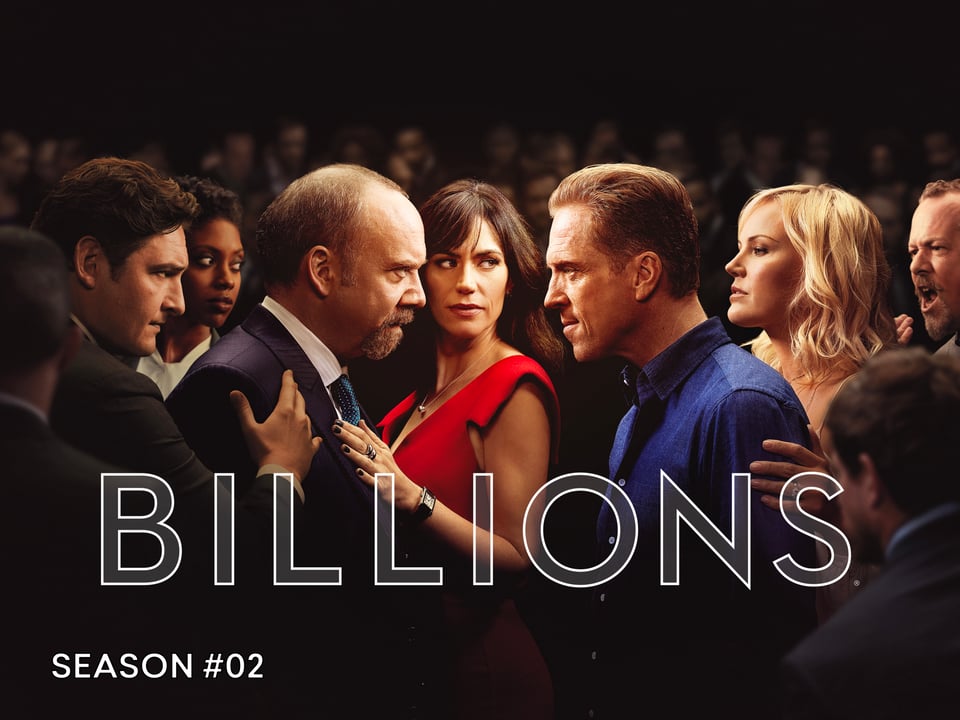Billions
I'm constantly on the hunt for narratives that can explain the complexity of the relationship between private finance and public education. I think if people knew more about how this all worked, there'd be a better chance of changing it. But the issues are notoriously boring and hard to follow, making it hard for the stakes to get taken up in political campaigns, organizing, and popular culture.
But sometimes examples emerge. One text that I teach frequently is the HBO film Bad Education, which depicts school facilities finance corruption in a dramatic way. But the film doesn't take up the specific issue of municipal bonds and how punishing they can be.
I saw an episode of Billions recently though that might just be the only popular culture treatment of municipal bonds that gets at why they're so bad, particularly for school districts. In Season 2 episode 7 of the show, we get a very clear look at the direct touchpoint between capitalism and public schools.

If you don't know the show, it's about the rivalry between a charismatic investment banker and a Machiavellian head lawyer for New York's Southern District. They're at each other's throats and in the push-pull you get a pretty good picture of the dialectic between the repressive state apparatus and capitalist mode of production.
The banker leads an investment firm called Axe Capital. At one point, they see an opportunity to invest in a small town in upstate New York called Sandicot that's slated to get a casino. Axe Capital buys the town's municipal bond to finance the project. That means the town is deeply in debt to the investment firm and has to pay back the loan with interest, but the casino will more than cover the cost. Until things go bad.
The lawyer's father is an older investor who's involved in state politics. He gets the casino's location changed to a different town, leaving Axe capital with Sandicot's debt. The town has no way to pay it back, leaving the investors having to figure out how to deal with collecting the loan. As New York Magazine summarized the episode when it came out:
the brain trust at Axe Capital has to figure out how to salvage the Sandicot situation. The only real idea on the table is the one that makes it hardest to sleep at night — austerity. What that basically means is that the city will have to pay back Axe Capital before they pay anyone else. Think about that on a city level. It will gut schools, city jobs, utilities, and public funds. Crime goes up. Schools will close. The police force will be cut. It has a viral effect that could go as far as to turn Sandicot into a ghost town — just so a hedge fund gets paid back.
There's an amazing scene where all the people working at the investment firm are figuring out what to do about this situation. They have the power to decimate the town. It's in their legal right to basically lay it to waste by collecting their principal and interest payments, draining it of every resource, including it's schools.
Some of the traders can't stomach ruining an entire town just for the meager profit. But then a character named Taylor advances an ultra-libertarian position that the town must fail, that it's better for them to face the consequences of their decision to take the loan out in the first place. They cite Taleb's concept of anti-fragility. Basically, Taylor says the town mismanaged its own funds and should either dig its way out or die, like an animal in nature, and that the firm should continue to pursue its own profit-seeking and collect the debt.
At the beginning of the monologue, the character says "in many ways, a town is like a business." That's the key here: for this whole frame to work, you have to understand something public--a town and its schools--as something private--a for-profit entity competing on a market. You have to imagine towns and school districts in a constant battle, basically social Darwinism, to survive and thrive.
Of course, we don't have to imagine reality that way. There are many other, kinder, more generous ideologies available. In a market socialist version of this world depicted by the television show, it'd be the worker-managers of local firms gathered together trying to figure out how best to allocate resources to their people's education, not a group of capitalists looking to make as much profit as possible on the liberal hope that, as they pursue their self-interest, and so does the town, that the best allocation of resources will emerge magically.
While the example of Sandicot is fictional and also exceptional, it illustrates a rule of school finance in the United States, something true, which is that public school districts themselves are beholden to private investors who loan them the funds they need for their infrastructure costs. These public school districts are always already in a fight for their lives due to the punitive credit ratings and fees these private entities charge them. The investors can and will collect their debt payments, which binds the districts' possibilities for its mission: to educate everyone in their purview.